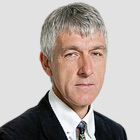One in four teachers and one in eight nurses will be higher-rate taxpayers by 2027 as a result of the government’s record freeze on income tax allowances and thresholds, according to a leading thinktank.
The Institute for Fiscal Studies said better-paid public sector workers will be among the almost 8 million people – one in five of all taxpayers – who will pay income tax at 40% or above as result of the Treasury’s attempt to reduce the UK’s budget deficit.
In what it described as the biggest tax-raising measure since the incoming Conservative government doubled VAT to 15% in 1979, the IFS said an additional 2.5 million people would no longer be basic rate taxpayers by the time the six-year freeze on allowances and thresholds came to an end in 2027-28.
The IFS said the decision not to uprate allowances and thresholds was adding to the financial pressures on workers whose wages were failing to keep pace with inflation.
The chancellor, Jeremy Hunt, has said action is needed to repair the damage to the public finances caused by the Covid-19 pandemic, but the IFS report is likely to lead to fresh calls from some Conservative MPs for taxes to be cut. The Office for Budget Responsibility, the independent body that makes economic forecasts for the government, has said taxes as a share of national income are on course to be their highest in 70 years.
Isaac Delestre, a research economist at IFS, said: “For income tax, the story of the last 30 years has been one of higher-rate tax going from being something reserved for only the very richest, to something that a much larger proportion of adults can expect to encounter.”
The thinktank’s report said that in the early 1990s, no nurses and only 5%-6% of machinists, electricians and teachers paid higher-rate income tax. But by 2027-28, more than one in eight nurses, one in six machinists and fitters, one in five electricians and one in four teachers will be higher-rate taxpayers.
The report said the failure of tax allowances and thresholds to keep pace with inflation – the process known as fiscal drag – had resulted in a “seismic shift” to the system and would be a big cause of the record fall in living standards this year. A third of the expected fall in household incomes was because of tax allowances and thresholds being frozen.
The IFS said that in 1991-92, 3.5% of UK adults (1.6 million) paid the 40% higher rate of income tax. By 2022–23 that had risen to 11% (6.1 million), and the figure will reach 14% (7.8 million) by 2027–28.
Of the 14%, 3.1% of adults (1.7 million) will face marginal tax rates of either 45% or 60% – almost as large a share as paid the 40% higher rate at the start of the 1990s. For the 40% rate to affect the same proportion of taxpayers as it did three decades ago, the higher-rate threshold – currently £50,270 – would need to be nearly £100,000.
Delestre said there had been “a fundamental and profound change” to the income tax system.
“The freeze to thresholds is supercharging that process, pulling an additional 2.5 million more people into paying rates of 40% or more by 2027–28. Whether or not the scope of these higher rates should be expanded is a political choice as much as an economic one, but achieving it with a freeze leaves the income tax system hostage to the vagaries of inflation – the higher inflation turns out to be, the bigger impact the freeze will have,” he said.











